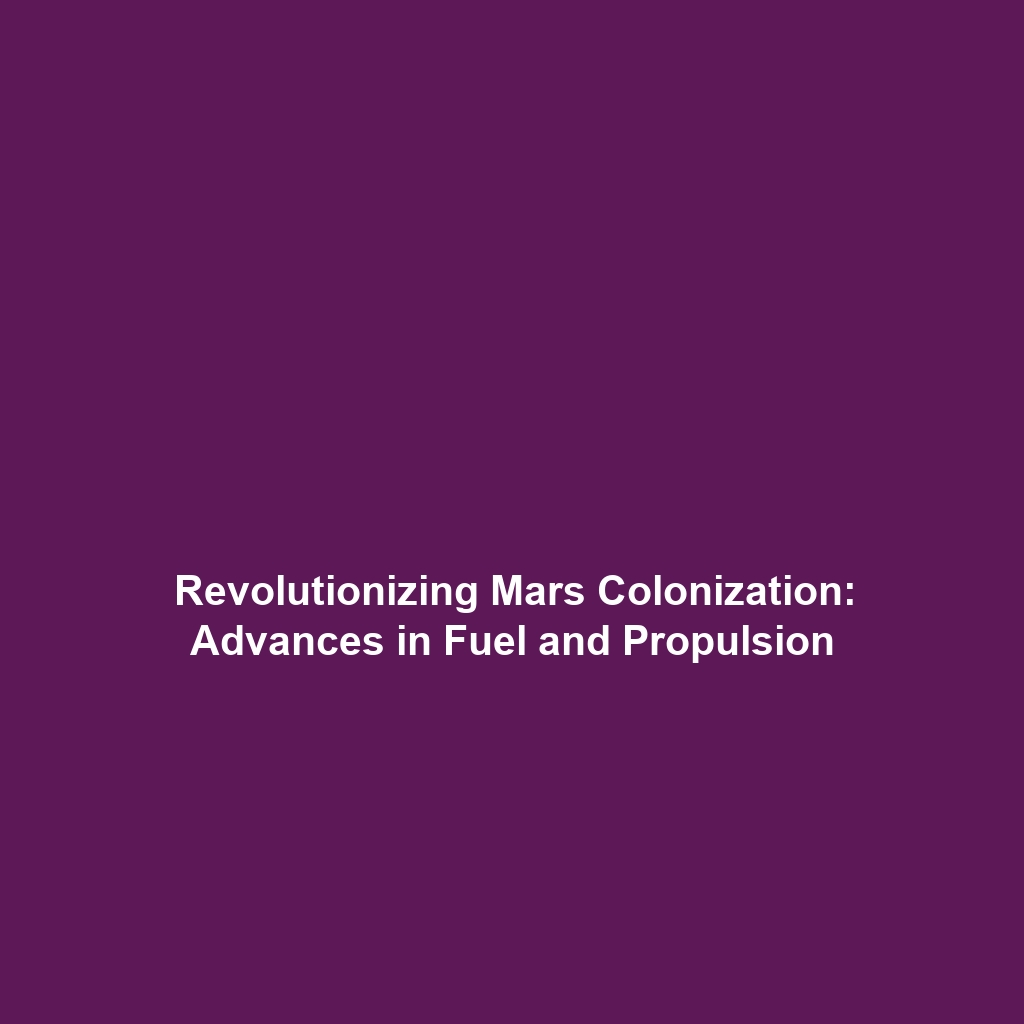Fuel and Propulsion Systems: Advances in Propulsion Technologies for Colonizing Mars
Introduction
The journey towards colonizing Mars hinges on the development of sophisticated fuel and propulsion systems. Advances in propulsion technologies, notably nuclear and ion engines, are pivotal for sustaining long-duration missions to the Red Planet. Understanding these technologies not only enhances our capability to transport humans and cargo efficiently but also paves the way for establishing a lasting human presence on Mars. This article delves into the significance of these propulsion advancements within the broader context of colonizing Mars.
Key Concepts
Nuclear Propulsion
Nuclear propulsion systems utilize nuclear reactions to generate thrust, offering a higher specific impulse compared to conventional chemical rockets. This technology holds promise for deep space missions by dramatically reducing travel time to Mars.
Ion Propulsion
Ion engines operate on the principle of ionizing propellant and accelerating ions through electric fields, providing efficient thrust over extended periods. These systems are especially advantageous in the vacuum of space, representing a crucial advancement for missions aiming for colonizing Mars.
Applications and Real-World Uses
Advancements in fuel and propulsion systems are already being integrated into current space missions. Their applications include:
- Nuclear thermal propulsion: This has the potential to shorten travel time to Mars, making manned missions more feasible.
- Ion propulsion: Used in missions like NASA’s Dawn spacecraft, demonstrating the effectiveness of electric thrust in deep space exploration.
Current Challenges
Despite the potential benefits, there are several challenges associated with these propulsion advancements:
- Technical complexity: The engineering and logistical challenges of developing nuclear reactors suitable for space.
- Regulatory hurdles: Regulatory approvals for nuclear propulsion systems pose significant delays.
- Public perception: Concerns regarding safety and environmental impacts of nuclear technology.
Future Research and Innovations
The future of fuel and propulsion systems looks promising with numerous innovations on the horizon:
- Advanced nuclear reactors: Research is underway to develop compact nuclear reactors to enhance safety and efficiency.
- Hybrid propulsion systems: Exploring combinations of chemical and electric propulsion for more versatile missions.
Conclusion
In summary, the development of fuel and propulsion systems, particularly nuclear and ion engines, is crucial for the ambitious goal of colonizing Mars. As technology continues to evolve, we may soon see breakthroughs that will enable humanity to make the journey to Mars a reality. For further insights on space exploration, consider exploring our articles on Mars missions and space propulsion technologies.

Leave a Reply